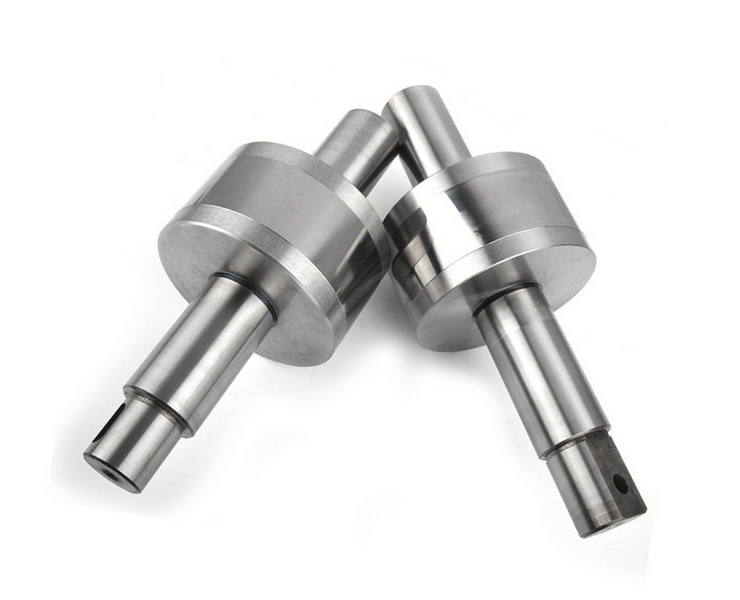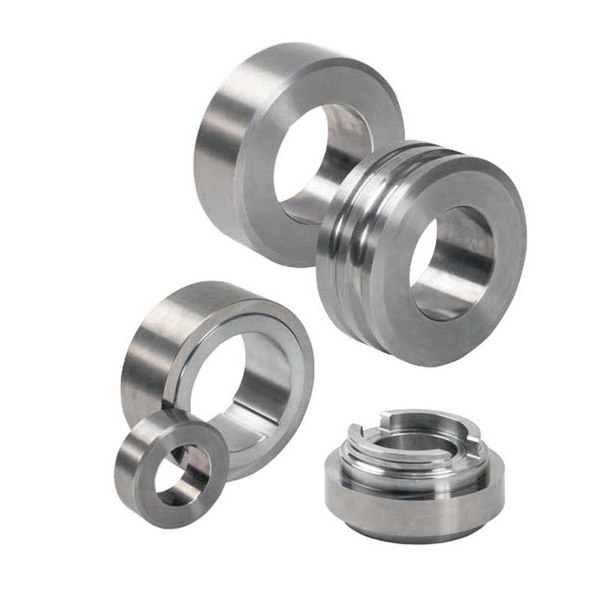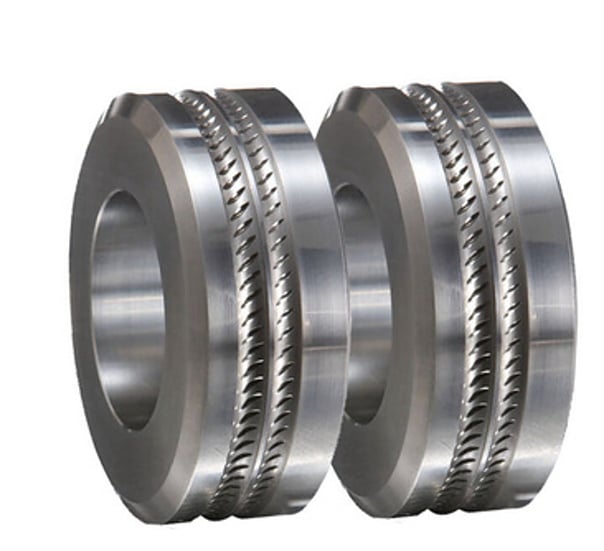Content Menu
● Introduction
● Understanding Tungsten Carbide Rolls
>> Comparison with Traditional Steel Rolls
● Key Benefits of Tungsten Carbide Rolls
>> Enhanced Durability
>> Improved Performance
>> Cost-Effectiveness
● Applications of Tungsten Carbide Rolls
>> Use in Rolling Mills for Steel, Aluminum, and Other Metals
>> Specific Industries Benefiting from Tungsten Carbide Rolls
● Choosing the Right Tungsten Carbide Rolls
>> Factors to Consider
● Conclusion
● Related Questions
>> 1. What are the main advantages of tungsten carbide rolls over steel rolls?
>> 2. How do tungsten carbide rolls affect the quality of rolled products?
>> 3. What industries benefit the most from using tungsten carbide rolls?
>> 4. How can manufacturers choose the right tungsten carbide rolls for their operations?
>> 5. Are tungsten carbide rolls more expensive than traditional steel rolls?
Introduction
Tungsten carbide rolls have become a cornerstone in the manufacturing and metalworking industries, particularly in rolling mills. These rolls are known for their exceptional hardness, wear resistance, and durability, making them an ideal choice for various applications. As industries strive for efficiency and quality, understanding how tungsten carbide rolls enhance the performance of rolling mills is crucial. This article delves into the benefits, applications, and considerations surrounding tungsten carbide rolls, particularly in the context of rolling mills.

Understanding Tungsten Carbide Rolls
Tungsten carbide rolls are made from a composite material consisting of tungsten and carbon. This combination results in a material that is significantly harder than traditional steel, allowing it to withstand the rigors of high-speed operations in rolling mills. The manufacturing process of tungsten carbide involves sintering, where tungsten powder is mixed with carbon and heated to form a dense, hard material. This process not only enhances the hardness of the rolls but also improves their overall performance in various applications.
Comparison with Traditional Steel Rolls
While traditional steel rolls have been the standard in rolling mills for decades, they often fall short in terms of durability and performance. Steel rolls are prone to wear and deformation under high stress, leading to increased maintenance costs and downtime. In contrast, tungsten carbide rolls offer superior wear resistance, allowing them to maintain their shape and performance over extended periods. This durability translates to fewer replacements and lower operational costs, making tungsten carbide rolls a more economical choice in the long run.
Key Benefits of Tungsten Carbide Rolls
Enhanced Durability
One of the most significant advantages of tungsten carbide rolls is their enhanced durability. These rolls can withstand extreme conditions, including high temperatures and pressures, without losing their structural integrity. This durability is particularly beneficial in rolling mills, where the continuous operation can lead to significant wear on traditional rolls. Tungsten carbide rolls can operate for longer periods without the need for replacement, reducing downtime and maintenance costs.
Improved Performance
Tungsten carbide rolls contribute to improved performance in rolling mills in several ways. First, their hardness allows for higher operational speeds, which can increase productivity. When rolling materials, the ability to maintain consistent pressure and speed is crucial for achieving the desired thickness and quality. Tungsten carbide rolls provide the necessary stability and performance to meet these demands.
Additionally, the surface finish of products rolled with tungsten carbide rolls is often superior to those rolled with steel. The smooth surface of tungsten carbide minimizes friction, resulting in a better finish on the final product. This quality is essential in industries where surface integrity is critical, such as automotive and aerospace manufacturing.
Cost-Effectiveness
While the initial investment in tungsten carbide rolls may be higher than that of traditional steel rolls, the long-term cost savings are significant. The reduced frequency of replacements and lower maintenance costs contribute to a more cost-effective solution. Furthermore, the improved performance and efficiency of tungsten carbide rolls can lead to increased production rates, further enhancing their economic viability.

Applications of Tungsten Carbide Rolls
Tungsten carbide rolls are utilized in various applications within rolling mills. Their versatility makes them suitable for rolling different materials, including steel, aluminum, and other metals. Here are some specific applications:
Use in Rolling Mills for Steel, Aluminum, and Other Metals
In steel rolling mills, tungsten carbide rolls are used to shape and size steel products, such as sheets, plates, and bars. The ability to maintain high speeds and consistent pressure allows for efficient production processes. Similarly, in aluminum rolling mills, tungsten carbide rolls help achieve the desired thickness and surface quality, essential for applications in the automotive and packaging industries.
Specific Industries Benefiting from Tungsten Carbide Rolls
Several industries benefit from the use of tungsten carbide rolls in their manufacturing processes. The automotive industry, for instance, relies on high-quality rolled materials for components such as body panels and structural parts. The aerospace industry also demands precision and quality, making tungsten carbide rolls an ideal choice for producing lightweight and durable materials.
Choosing the Right Tungsten Carbide Rolls
When selecting tungsten carbide rolls for rolling mills, several factors should be considered to ensure optimal performance:
Factors to Consider
1. Size and Specifications: The size of the rolls must match the requirements of the rolling mill. Specifications such as diameter, length, and profile are crucial for achieving the desired results.
2. Supplier Reliability: Choosing a reputable supplier is essential for ensuring the quality and performance of tungsten carbide rolls. Look for suppliers with a proven track record in the industry.
3. Customization Options: Some manufacturers offer customization options for tungsten carbide rolls, allowing for tailored solutions that meet specific operational needs.
Conclusion
Tungsten carbide rolls play a vital role in enhancing the performance of rolling mills. Their durability, improved performance, and cost-effectiveness make them a superior choice compared to traditional steel rolls. As industries continue to seek ways to improve efficiency and quality, the adoption of tungsten carbide rolls is likely to increase. Understanding the benefits and applications of these rolls can help manufacturers make informed decisions that lead to better production outcomes.

Related Questions
1. What are the main advantages of tungsten carbide rolls over steel rolls?
Tungsten carbide rolls offer enhanced durability, improved performance, and cost-effectiveness compared to traditional steel rolls. They can withstand extreme conditions, maintain high operational speeds, and provide superior surface finishes.
2. How do tungsten carbide rolls affect the quality of rolled products?
Tungsten carbide rolls contribute to a better surface finish and consistent thickness in rolled products, which is essential for industries requiring high-quality materials.
3. What industries benefit the most from using tungsten carbide rolls?
Industries such as automotive, aerospace, and packaging benefit significantly from tungsten carbide rolls due to their need for high-quality rolled materials.
4. How can manufacturers choose the right tungsten carbide rolls for their operations?
Manufacturers should consider factors such as size, specifications, supplier reliability, and customization options when selecting tungsten carbide rolls.
5. Are tungsten carbide rolls more expensive than traditional steel rolls?
While the initial investment in tungsten carbide rolls may be higher, their long-term cost savings due to reduced maintenance and replacement needs make them a more economical choice overall.
















